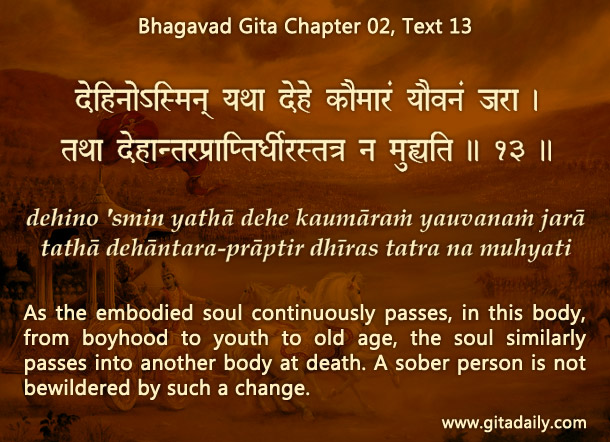When labels help and when they harm – Suppose we lose our temper repeatedly. Soon, people around us may label us as short-tempered. Eventually, we too may accept that label and use it to justify our harsh behavior: “What can I do? I am a short-tempered person.” Such use of the labels as an explanation can take away our impetus to control our temper even when we can.
Are labels always harmful? No, they can help when used as a functional description. We all have some weaknesses — and knowing them is helpful when we take up particular roles. If we are short-tempered and we still try to conduct a high-stakes mediation between two embittered parties, we set ourselves for a painful failure that is avoidable.
How can we use labels effectively? By remembering that the underlying weaknesses are not us; they are just part of us. The Bhagavad-gita (02.13) indicates that we are spiritual beings, distinct from our body-mind machines. Our weaknesses are like the defective programs on our machines. We are not short-tempered; our mind is.
If our weaknesses are extrinsic to us, then are we not responsible for them? We are; they got into our machines as karmic reactions to our past poor choices. Still, if our past choices got them inside us, our choices henceforth can get them out of us — thankfully, our machines are reprogrammable.
To reprogram our machines, we need inner strength, which we can develop by consistent spiritual practices that anchor us in our core identity. Being thus fortified, we can resist the promptings of our present programming and make healthier choices. When repeated over time, these better choices will become our default programming, thereby freeing us from our weaknesses.
One-sentence summary:
Use labels as descriptions that remind us to take precautions when dealing with our weaknesses; don’t use labels as explanations for those weaknesses, lest we end up rationalizing and aggravating them.
Think it over:
- When can labels help and when harm?
- How can we use labels effectively?
- How can we reprogram our machines?
***
02.13: As the embodied soul continuously passes, in this body, from boyhood to youth to old age, the soul similarly passes into another body at death. A sober person is not bewildered by such a change.


Leave A Comment